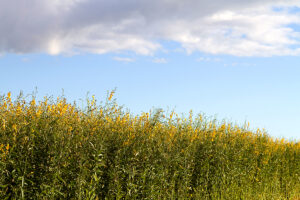Biomass conversion bid heads to court after planning refusal

Verdant Earth Technologies has applied to the state’s Land and Environment Court to overturn a September ruling by the Independent Planning Commission (IPC), which rejected its bid to recommission the 151-megawatt plant at Warkworth. The station, once fuelled by coal tailings, has been out of service since 2014.
Verdant is seeking approval for a $70 million (€39 million) overhaul that would see the generator run on around 700,000 tonnes of biomass each year.
The company says this would initially come from “invasive native species” (INS) cleared by landholders, before transitioning to purpose-grown plantation crops. It argues the project would restore a source of firm power to the grid as several coal-fired stations edge towards closure.
The state planning department previously assessed the scheme as suitable for approval, but the volume of community objections triggered referral to the IPC. The commission ultimately rejected the application, citing concerns that Verdant had not adequately addressed the risk of incentivising broad-scale land clearing or the environmental effects of harvesting INS. Commissioners also noted uncertainty around future plantation supply and the project’s fuel strategy.
Local residents raised fears during public hearings that the conversion would reintroduce air-quality problems to the region, while conservation groups warned of pressure on native vegetation. Verdant has since insisted it would not source material from native forests.
Chief executive Richard Poole said the company was not given a fair opportunity to respond to the IPC’s concerns and will use the court process to provide a detailed rebuttal.
“They said we hadn’t given them enough information about the fuel strategy and how it works, but there’s nothing there we can’t answer,” he told Renew Economy.
Much of Verdant’s case hinges on the role of biomass as a management tool for landholders in western NSW. In the Cobar district, invasive native scrub - classified as a weed species—has spread thickly across rangelands. Farmers are allowed to remove the vegetation under specific conditions, but the typical practice is to burn it on site.
Poole argues that transporting this material for controlled combustion at Redbank is a more efficient and environmentally sound option. He claims one producer alone has offered to supply enough INS to meet most of the plant’s yearly requirement.
To secure future fuel, Verdant also proposes establishing an “energy crop” programme involving millions of fast-growing trees harvested on short rotations. Poole maintains that repeated cycles of planting and coppicing would enable the plant to operate with net-zero carbon emissions. The company is also examining whether suitable waste timber streams could supplement supply.
Environmental organisations, including the Nature Conservation Council, remain unconvinced. They argue that expanding wood-burning for electricity is inconsistent with climate goals and risks further strain on ecosystems.
Poole counters that failing to use already-available biomass from weed species amounts to squandering a resource. “Wasting it in paddock burns is unnecessarily extravagant,” he says.
The court is expected to consider Verdant’s appeal in the coming months.


















